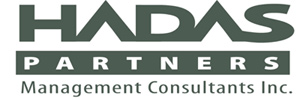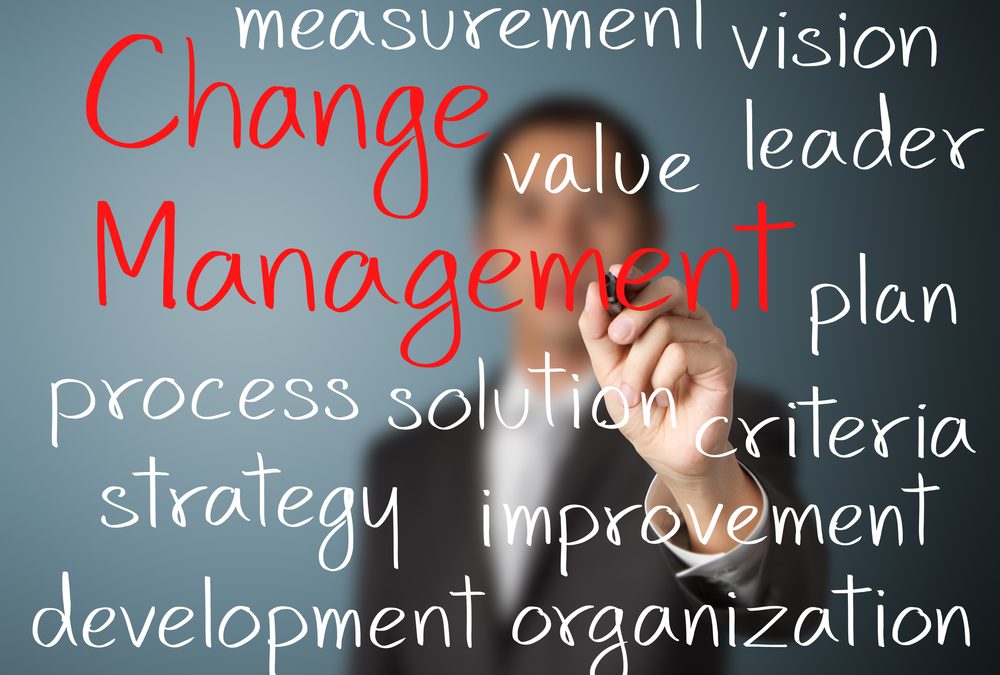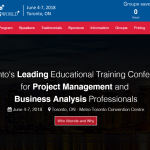My son’s friends were over the other night watching a sports event. They are all partway through university and beginning to think seriously about their careers. One of them asked me what I did for a living. Being a change management consultant, I knew better than to say that. Unless people have experience working with larger projects, they likely don’t know what that term means.
So rather than saying “I am a change management consultant”, I tend to explain in generic terms what I do, in a way most people seem to be able to understand. As I was explaining what I do, my son’s friend shot out, “Oh, are you in change management?”
Wow, OK Boomer, I did not expect that.
It turns out he is at Ryerson University in Toronto studying to be a change management professional. And like most young people his age, he was struggling to get some kind of co-op job in his desired field.
He was looking at change management analyst jobs, and there are not that many of those. So we talked about what skills it takes to be a good change management consultant. He was looking to broaden his search, and I gave him some advice. Afterwards I thought I would share it in this blog to help any other aspiring change management consultants. If you do want to go this route, welcome to the tribe!
Becoming a Well Rounded Change Management Consultant
 To be well rounded in change management you need a combination of 5 different skill sets: communications, training, human resource consulting, business process design and project management. You will need a combination of these skills as a change management lead on projects. As a matter of fact, it may be better to start off in one of these areas first, rather than as a change management analyst. Once you have a couple of the above skill sets, the analysis skills will start to come naturally.
To be well rounded in change management you need a combination of 5 different skill sets: communications, training, human resource consulting, business process design and project management. You will need a combination of these skills as a change management lead on projects. As a matter of fact, it may be better to start off in one of these areas first, rather than as a change management analyst. Once you have a couple of the above skill sets, the analysis skills will start to come naturally.
Now, this may sound a bit overwhelming, needing to pick up 5 different skills. Don’t despair. It will take you some time, yes, but not nearly as much as you may fear. Why? Because you will get exposure to all or most of those five areas regardless in which one you start.
For example, let’s say you start off in a communications support role on a project. While there, you will also need to collaborate with the training person, the project manager, HR consultant, and others. The same goes regardless of where you start. In other words, it’s all overlapping and therefore cumulative.
Some ‘pros and cons’
Now, how fast you pick up the various skills depends on how much extra work you are willing to do. Expertise is basically experience times time. For example, if you are in a project management-type role, there will be always opportunities to help craft some communications or develop some training content. If you do some of that additional work, you’ll get to your goal of being a change management consultant faster. Or, you’ll more quickly discover that this is not for you, which is also very valuable!
However, it will mean that you’ll be very busy, but that’s life – there are rarely any shortcuts. You may begin to feel, with so much to do and learn, that you are a bit out of control. Just remember the words of the famous race car driver Mario Andretti:
“If you’re feeling in control, you’re not moving fast enough.”
5 Skill Areas for Change Management Consultants
If you’re wondering where to start, here is a quick summary of the value and limitations of each area for you to become a complete change management consultant.
Communications
 Working in communications on projects, you’ll learn how to do stakeholder analyses, audience segmentation, and the importance of tailoring messages. You will also be exposed to the importance of organizational hierarchies in cascading messages. Communications also teaches one the importance of deadlines while remaining flexible. Since communications usually encompasses the needs of the entire organization, it also helps in developing systems thinking.
Working in communications on projects, you’ll learn how to do stakeholder analyses, audience segmentation, and the importance of tailoring messages. You will also be exposed to the importance of organizational hierarchies in cascading messages. Communications also teaches one the importance of deadlines while remaining flexible. Since communications usually encompasses the needs of the entire organization, it also helps in developing systems thinking.
While communications is important to build awareness and help reduce resistance, it has its limitations. It is not much help in skill building and creating long-lasting behaviour change.
Training
Working in training on projects will expose you to how adults actually learn, how to develop materials that inform while not boring the soul out of participants, and how important it is to have the right presenter. You will also be exposed to structured approaches for developing and delivering learning and the need to coordinate training activities with other project activities and milestones.
You will also experience the limitations of training. Merely imparting knowledge does not lead to changes in willingness to adopt new processes and technologies. Training by itself also has limited effect on building long-lasting behaviour change.
Human Resource Consulting
Working as a HRC generalist will build your skills of effective listening to clients, and will deepen your sensitivity to how decisions impact human responses and behaviour. It is also a good way to learn core consulting skills of offering options and recommendations and framing these in terms of risks and benefits. That’s different than just giving someone a solution.
The limitation of this role is that this exposes you to mostly individual and small group consulting. Although very important, it does not usually provide you with opportunities for large-scale coordination and facilitation.
Business Process Design
 Working on mapping and designing business processes and work flows teaches you how an organization really works, rather than how people may think or hope things are done. You get to “see the guts of it”, as one of my colleagues put it. As an added bonus, process mapping is great at developing that linear analytic skill that some of the other roles may not provide.
Working on mapping and designing business processes and work flows teaches you how an organization really works, rather than how people may think or hope things are done. You get to “see the guts of it”, as one of my colleagues put it. As an added bonus, process mapping is great at developing that linear analytic skill that some of the other roles may not provide.
This type of work also leads to understanding roles and responsibilities that you will need to do any kind of job design or organizational design work, performance management work, and so on. And these are some of the most important change activities in building long-term behavioural change.
The limitations of process design is that it focuses on specific areas of a business in detail and therefore the opportunity to see how an organization functions from a high level is difficult. You’ll also experience how a process that makes excellent sense on paper is no guarantee that anyone will adopt it in practice.
Project Management
Since changes tend to be implemented through projects, knowing project management is critical. As a change management lead often your best friend will be the project manager. If you understand what it takes to manage a project you will have a good grasp of the PM’s challenges and stresses, which in turn will be invaluable in getting your change activities implemented. Basically, project management is all about successful execution, and execution is the most important quality of an effective change management lead.
The limitations of project management tend to be a focus on efficiency (“get it done on time and budget”), rather than the emphasis on effectiveness (“will people use it?”) that is key to change management. Also, there is a mindset of an end point (projects are defined as having a defined start and end date), while a change management lead has to think of sustainability (long after a project is formally over).
Where to start?
My recommendation is: start anywhere.
If you want to get into change management, look for co-op or entry level jobs in any of these five areas. You won’t go wrong. And then stick it out for a bit. Develop a competency. That usually takes at least a couple of years.
Then transition out and look for an opportunity to develop one of the other skills, which should now take you less time since, as I said before, these areas are related. At some point, as you are developing these skills, it will suddenly become evident to you that you have become a change management professional. It will all just make sense.
I hope this answers some of your questions and reduces some very common and understandable anxieties. Good luck!
Let us know what you think – Contact us!
Like this blog? Share it with your colleagues. And sign up so you won’t miss another one!












